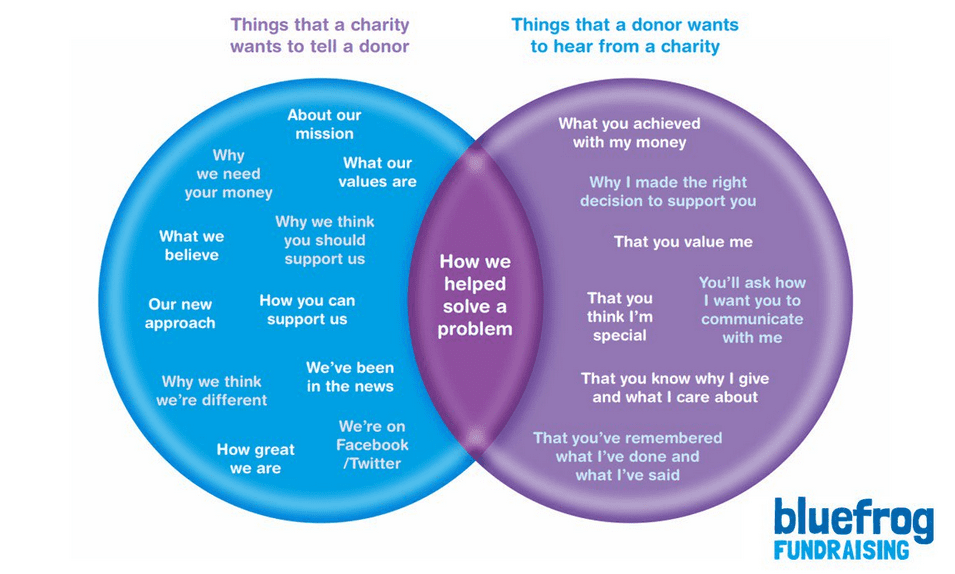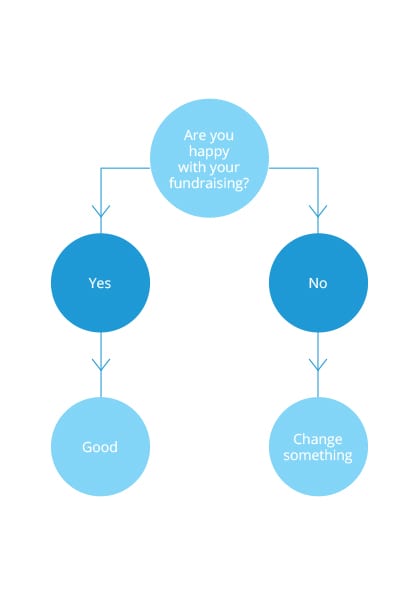The time for leadership – giving in the time of Coronavirus.
With more than a 100 days passing since the lockdown began in the UK, I'm happy to be able to release the third stage of Bluefrog's research findings into donor attitudes to giving during the pandemic.
The changes we have seen are significant and I believe they require us to change our response to the way we fundraise now and into 2021.
As before, we have spoken to actual donors rather than general members of the public. These findings are from the people we – as fundraisers – depend on. Following a number of requests, we included a large tranche of regular (monthly) givers in this sample. Within this group was a subset of child sponsors.
So what did we find? The following video takes you through what we discovered and what we are recommending:
But if you want the key findings (even though you are missing out) here you go:
The healthcare element of the crisis is seen to have largely abated which has left donors with a feeling of a life in limbo. The immediate danger seems to be over - but we are yet to return to anything that resembles life before Coronavirus.
However, there are still significant concerns voiced about the economic impact of the lockdown at home as well as worries about how the global situation might unfold as the virus hits people who live in poor communities overseas.
At the same time, we have seen a fall in trust in authority. This became apparent after some questionable policy decisions by the government but really became an issue after Dominic Cummings took trip to Barnard Castle to test his eyesight.
Donors have also continued to tell us that they have been left wondering why charities have been so quiet – which has added to a growing sense of despondency.
People know there is still a problem to tackle. But many of the donors we spoke to report that they just don't know what they should be doing or who they can trust. This led to a rise in levels of insecurity.
Donors want to help - and will help - but they need leadership.
Up to this point, donors have valued charities that could be nimble and agile but now they are looking for longer-term plans. With a global humanitarian crisis expected to hit at the same time as a financial storm, donors want to see that their charities are ready to respond.
Of course, they understand that things are changing and that plans will always need to adapt. But knowing that a strategy is in place will provide the security that they need. They also want to know what their role – as supporters – will be. And, most importantly, they are ready for a frank conversation about what is required of them.
The key findings are:
- People still value much of how society has come together to tackle the virus - and they don't want to lose that.
- With levels of insecurity rising, donors are starting to revert to giving to the charities they have traditionally supported – particularly if they represent a cause they may have been neglected. Support of the NHS has been reconsidered by some.
- Arts and international development causes have grown in importance for people who have always valued this work. Donors who have never given to these causes are now also considering supporting them.
- Local charities where donors can see both the need and money in use continue to be popular – as do charities that are tackling the worst impact of the pandemic.
- Donors are judging any request for help according to three factors:
- Level of need
- How important the work is seen to be by their community or wider society
- Whether that work is funded by a charity that they currently give to.
- Feeling financially secure is also growing in importance as a filter. Many traditional donors are speaking about needing money for grown-up children 'just in case'.
- Donors still value payment holidays. As we have previously advised, give people the opportunity to take a break for at least a year.
- Donors are increasingly likely to be happy to consider short-term regular gifts for the duration of the pandemic. They would be willing to give much higher monthly sums than the £3 that has become the sector norm in the UK.
- If people are financially secure, they are likely to give more than pre-Coronavirus.
- Many regular givers report that they have felt like they have not been needed - or that the charity they support is too busy to get in touch with them. They need reassurance.
- No donor felt that they had been asked too much!
- You'll need a case for support that focuses on the medium-term rather than the very long-term future. Share your vision for the next 18 months.
We have also found that donors are exhibiting a revised set of need states that need to be answered in your communication programme:

What do you need to do now?
Your next job as a fundraiser is to work out how you become the recognised leader in driving change in your cause area. People are crying out for leadership as they want to know what to do about the problems that worry them. This is a huge opportunity for the charity that takes it.
Do this successfully and you will help tackle your donor's sense of helplessness and give them control. It will also help them become the valued member of a valued group that they find so attractive.
The impact of Coronavirus will be with us for some time. This isn’t just about getting back to normal. This is about building back better.
And that challenge should lie at the heart of your plan. All set within the framework of considered uncertainty – you know things may change, so do your donors. But that does not mean they want to be left in limbo any longer.
This is a major change from the early stages of the crisis. How you react now will impact on what happens at your charity for the next 18 months - at least.
So what are you going to do? Can you offer your donors the leadership they are looking for?
Because that is what matters now.
Next steps
We are continuing this study and will share the next stage of findings in late August / early September. If you need help from me or Bluefrog, please feel free to contact me through email at [email protected] or via twitter at @markyphillips. I look forward to hearing from you.
Thanks for sticking with us. Best of luck.
Tags In
Related Posts
12 Comments
Comments are closed.
The Essentials

Crack the Code to Regular Giving: Insights, Strategies, and a Special Giveaway!

‘Tis Halloween. Keep to the light and beware the Four Fundraisers of the Apocalypse!

Why do people give? The Donor Participation Project with Louis Diez.

A guide to fundraising on the back of a postcard

What does the latest research tell us about the state of fundraising?










[…] supporters to help, as they know that so many people are facing financial insecurity. However, a recent survey of donors found that no donor felt like they had been asked for support too much since the beginning of the […]
[…] to recent interviews with donors, they are currently judging any request for help according to the following […]
[…] of society coming together to tackle an issue. As a result, people who are financially secure are more likely to donate to charity now than they were before the […]
[…] this year. Be a frank nonprofit leader. Your future may depend on it. For more on why, check out this excellent post from Mark Phillips on what donors need to stay giving to YOUR […]
[…] The time for leadership – giving in the time of Coronavirus. […]
[…] The time for leadership – giving in the time of Coronavirus. […]
[…] […] The time for leadership – giving in the time of … by Do your donors give to focus on a problem or to forget it? – File4Me.com […]
[…] The time for leadership – giving in the time of Coronavirus. […]
[…] this year. Be a frank nonprofit leader. Your future may depend on it. For more on why, check out this excellent post from Mark Phillips on what donors need to stay giving to YOUR […]
[…] this year. Be a frank nonprofit leader. Your future may depend on it. For more on why, check out this excellent post from Mark Phillips on what donors need to stay giving to YOUR […]
[…] this year. Be a frank nonprofit leader. Your future may depend on it. For more on why, check out this excellent post from Mark Phillips on what donors need to stay giving to YOUR […]
[…] The time for leadership – giving in the time of Coronavirus. […]